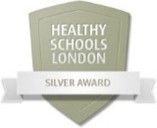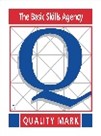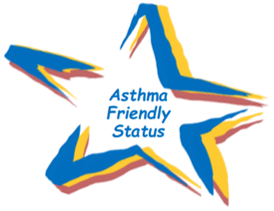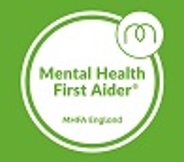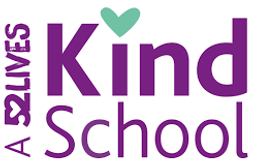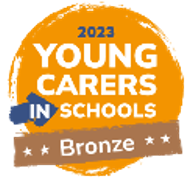
The Prevent Duty is about ensuring that appropriate support is available for individuals who may demonstrate vulnerabilities to radicalisation. This is an extension of the safeguarding process in the same way that schools help to safeguard young people from child sexual exploitation, drugs and other forms of harm.
Government’s Prevent Strategy defines Prevent as: "Stopping people becoming terrorists or supporting terrorism." and "Safeguarding vulnerable people from radicalisation is no different from safeguarding from other forms of harm."
The Government defines Extremism as: "Extremism is vocal or active opposition to fundamental British values, including democracy, the rule of law, individual liberty and mutual respect and tolerance of different faiths and beliefs. We also include in our definition of extremism calls for the death of members of our armed forces, whether in this country or overseas."
The Government defines Radicalisation as: "The process by which a person comes to support terrorism and extremist ideologies associated with terrorist groups."
What Does this Mean For Schools?
From July 2015, all schools (as well as other organisations) have a duty to safeguard children from radicalisation and extremism. This means we have a responsibility to protect children from extremist and violent views the same way we protect them from any other harm.
Importantly, we can provide a safe place for pupils to discuss these issues, at an appropriate level so they better understand how to protect themselves.
Preventing Radicalisation in School
Building resilience in our young people and the promotion of fundamental British values is at the
heart of preventing radicalisation. We do this by providing a safe place in which children can discuss
issues, and we aim to give them the knowledge and confidence to challenge extremist beliefs and
ideologies.
Our new Prevent duty is carried out under the Counter-Terrorism and Security Act 2015, which
legally requires us to take steps to prevent pupils from being drawn into terrorism.
We recognise that we play a vital role in keeping children safe from harm, including from the risks of
extremism and radicalisation, and in promoting the welfare of children in our care.
BRITISH VALUES
 The Department for Education states that there is a need “to create and enforce a clear and rigorous expectation on all schools to promote the fundamental British values of democracy, the rule of law, individual liberty and mutual respect and tolerance of those with different faiths and beliefs.” The government set out its definition of British values in the 2011 Prevent Strategy and these values were reiterated by the Prime Minister in 2014. At Glebe Primary School, these values are reinforced regularly and in the following ways:
The Department for Education states that there is a need “to create and enforce a clear and rigorous expectation on all schools to promote the fundamental British values of democracy, the rule of law, individual liberty and mutual respect and tolerance of those with different faiths and beliefs.” The government set out its definition of British values in the 2011 Prevent Strategy and these values were reiterated by the Prime Minister in 2014. At Glebe Primary School, these values are reinforced regularly and in the following ways:
Democracy
Democracy is embedded at the school. Pupils are always listened to by adults and are taught to listen carefully and with concern to each other, respecting the right of every individual to have their opinions and voices heard. Pupils also have the opportunity to air their opinions and ideas through our School Council and regular questionnaires. The elections of the School Council members, Head Boy and Head Girl are based solely on pupil votes, reflecting our British electoral system and demonstrating democracy in action. Pupils are also actively involved in the selection processes of new staff. Each year, the children at Glebe Primary School decide upon their class charter, listing their responsibilities and rights to a good education. All children contribute to the drawing up of these. In addition, we organize visits to the local council & magistrates court and all children are encouraged to debate topics of interest, express their views and make a meaningful contribution to the running of the school on matters that directly involve pupils.
Children also have a voice via the classroom ‘Worry boxes’ where they can raise concerns and share ideas.
The principle of democracy is explored in the History, PSHE (Personal Social health Education) and RE (Religious Education) curriculum as well as in assemblies.
The Rule of Law
The importance of laws (whether they are those that govern the class, the school or the country) are consistently reinforced throughout our school day, through our school assemblies and also when dealing with behaviour in school. We encourage our pupils to distinguish right from wrong and help pupils to understand that living under the rule of law protects individuals. Our pupils are taught the value and reasons behind laws: that they govern and protect us, the responsibilities that this then involves and the consequences when laws are broken. Visits from the Police, Fire Service and a local magistrate, are regular parts of our calendar and help reinforce this message, as does the topic of Crime and Punishment in year 6.
We have ‘The Glebe Way’, which are school values and expectations deeply embedded in our work every day. Rules and expectations are clear, fair and regularly promoted. Each class also discusses and sets its own rules, which are clearly understood by all and seen to be necessary to ensure that every class member is able to learn in a safe and ordered environment.
The Behaviour and Anti-Bullying policies encourage the restorative justice process to resolve conflict. The school has zero-tolerance for any form of aggression, abuse or violence, which extends to pupils, staff and parents/carers. Lunchtime Supervisors promote Playground Rules, within the Glebe way, for fair and happy playtimes.
We are committed to praising children’s efforts. Children are rewarded not only for achievement in curriculum areas but also for behaviour. Rewards are given in the form of stickers, Dojo points, house points and certificates. Children’s achievements are also recognised during Celebration Assemblies.
Individual Liberty
Within school, pupils are actively encouraged to make choices, knowing that they are in a safe and supportive environment. As a school we educate and provide boundaries for our pupils to make choices confidently, through the provision of a safe environment and an empowering education. We support pupils to develop their self-knowledge, self-esteem and self-confidence. Our pupils are encouraged to know, understand and exercise their rights and personal freedoms and are advised how to exercise these safely - examples of this can be clearly seen in our e-safety and PSHE lessons. We implement a strong anti-bullying culture and pride ourselves on being a community school, where we are all responsibility for keeping each other and ourselves safe.
We promote this value, through our PSHE and circle time, where children learn about expressing their views and understanding their rights and responsibilities and through our key stage assemblies such as: on Freedom of Expression, Celebrating your Creativity, Making a Difference, What is Your Right and Therefore Your Responsibility and Making the Right Choices. Our School Council has the responsibility to represent the views of their peers and our prefects, house captains and play leaders have the responsibility to look after their peers and the younger children at break times and lunch times. Additionally, our Eco club, promotes our responsibility of looking after our school and also the wider environment, as does our whole focus on fundraising and campaigning for local and global charities.
Mutual Respect And Tolerance of Those With Different Faiths And Beliefs
At the heart of our whole school ethos, is a commitment to The Glebe Way – a set of core attitudes and values that we believe contribute to individuals being able to live happy and successful lives within the communities to which they belong. Each value has been chosen to underpin the need for mutual respect between our pupils and their peers, staff, their families and their wider community.
Our shared values are taught through assemblies and PSHE sessions and form a key part of our daily dialogue across school. Respect and Tolerance are promoted across the school and are deeply embedded in all that we do. The pupils know and understand that it is expected and imperative for respect to be shown to everyone, whatever differences we may have and to respect our environment, both within the school and more widely.
These core values underpin our work every day both in and out of the classroom. Our school frequently participates in learning activities, which promote mutual respect including visits to local emergency services, residential care homes and social clubs for the elderly and local places of worship. In addition to these activities, our children are given regular opportunities to learn within their community and beyond, each time an emphasis is placed on respecting those with whom they come into contact and their surroundings. Our PSHE, RE, history and geography lessons, enable the children to learn about those who have similar experiences and those who have different experiences to their own. The children discuss the actions of other people, both current and from the past and identify what lessons can be learned from these.
A wide range of extra-curricular clubs are offered at Glebe. These clubs provide another opportunity for mutual respect to be secured in the attitudes of our pupils, both amongst those participating from their own setting, and any visiting staff or teams.
As previously stated, children in year 6 are able to apply to be house captains, prefects and or play leaders and are responsible to supporting younger children in the school. These positions are coveted and are held in high regard by all members of the school community. The children model respect for themselves and for each other and know that they are examples for other children to learn from.
Our core value of Respect ensures our value of Tolerance towards those who have different faiths and beliefs. We celebrate our diversity and show how proud we are of who we are. Glebe Primary School enhances pupils understanding of different faiths and beliefs through Religious Education studies; PSHE work; welcoming visitors from other schools, areas of London and representatives of our many different faiths and cultures here at Glebe. Assemblies are regularly planned to celebrate our multitude of different backgrounds - either directly or through the inclusion of stories and celebrations from a variety of faiths and cultures. Our RE and PSHCE teaching reinforce this. Members of different faiths are encouraged to share their knowledge to enhance learning within classes and the school.
ADVICE FOR PARENTS
Please click the images below to take to to websites which support parents as to how to have discussions about extremism and radicalisation and home.






